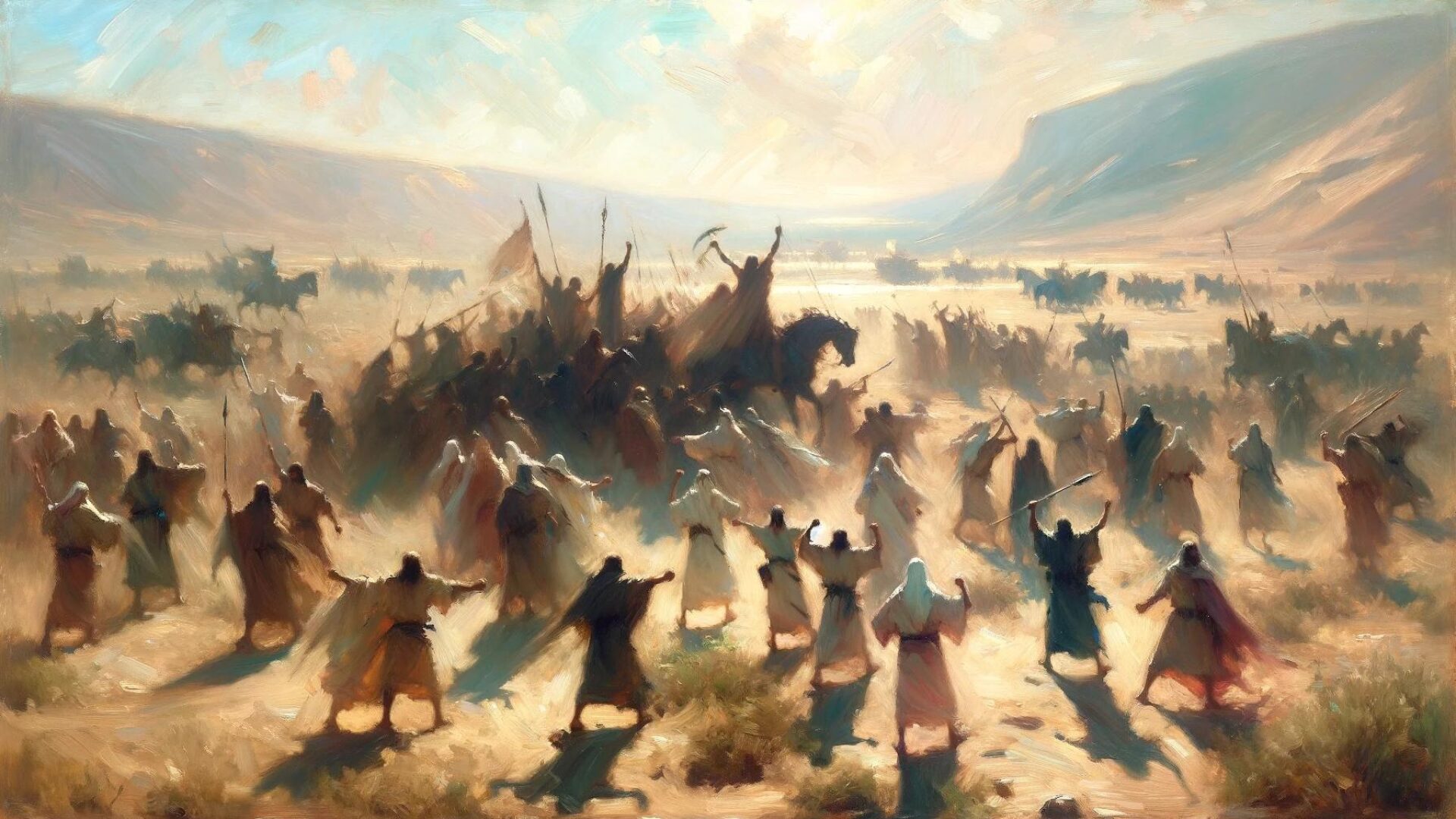South Africa is a country with a rich and diverse cultural heritage. Alongside its many indigenous cultures, South Africa is home to a vibrant Christian community that has played a significant role in shaping the country’s culture and society.
Christianity has a long and complex history in South Africa, with roots dating back to the arrival of European colonizers in the 17th century. Today, Christianity is the dominant religion in South Africa, with millions of people across the country practicing various denominations of the faith.
In this article, we will explore the unique traditions and practices of the South African Christian community, as well as its impact on the country’s history and culture. We will also examine the ongoing role of Christianity in South African society, its institutions and organizations, and the challenges and controversies that exist within the community.
Key Takeaways:
- Christianity has a long and complex history in South Africa that dates back to the arrival of European colonizers
- Christianity is the dominant religion in South Africa, with millions of followers across various denominations
- The South African Christian community has unique traditions and practices that are specific to the country
- Christianity plays a significant role in shaping the country’s culture and society, from politics to healthcare
- The South African Christian community faces challenges related to diversity, inclusivity, and social issues
The History of Christianity in South Africa
Christianity has a long and complex history in South Africa, dating back to the arrival of European settlers in the 17th century. The Dutch Reformed Church was the first Christian denomination to establish a presence in the country, followed by the Anglican Church and other Protestant denominations.
Christian missionaries played a significant role in spreading the faith among the indigenous populations, but also contributed to the colonization and exploitation of African people. This complicated legacy has led to ongoing debates and discussions about the role of Christianity in South African society.
The Role of Christianity in the Apartheid Era
During the apartheid era, the Christian church was deeply divided on issues of race and segregation. Some denominations, such as the Dutch Reformed Church, actively supported the apartheid regime and promoted the idea of separate development for different racial groups.
However, other churches, such as the Anglican Church and the South African Council of Churches, were vocal opponents of apartheid and advocated for human rights and social justice. Many individual Christians also played an important role in the anti-apartheid movement, including religious leaders such as Archbishop Desmond Tutu.
The Emergence of Independent African Churches
One of the most significant developments in South African church history is the emergence of independent African churches, which originated in the late 19th and early 20th centuries. These churches represented a rejection of European missionary influence and a desire for a more authentically African expression of Christianity.
Today, independent African churches continue to play a significant role in South African Christian culture, and are known for their emphasis on spiritual healing, prophecy, and deliverance.
The Growth of Pentecostalism and Charismatic Christianity
In recent decades, Pentecostalism and charismatic Christianity have experienced significant growth in South Africa. These movements emphasize personal spiritual experience and the gifts of the Holy Spirit, such as speaking in tongues and divine healing.
Pentecostal and charismatic churches often have a strong focus on evangelism and outreach, and have been particularly successful in attracting young people and those from disadvantaged backgrounds.
Overall, the history of Christianity in South Africa is a complex and nuanced story, shaped by a variety of cultural, historical, and political factors. Today, the Christian community in South Africa remains diverse and dynamic, reflecting the ongoing evolution of the faith both within the country and around the world.
Christian Traditions and Practices in South Africa
Christianity in South Africa has a unique blend of traditional African spirituality and Western Christian practices, resulting in a diverse and vibrant religious culture. The country’s Christian community is comprised of various denominations, each with their own distinct traditions and customs.
Religious Ceremonies and Festivals
One of the most well-known Christian ceremonies in South Africa is the Easter Vigil, which takes place on Holy Saturday. This vigil is a celebration of light, with churchgoers lighting candles to symbolize the resurrection of Jesus Christ. Other Christian festivals that are celebrated in South Africa include Christmas, Ascension Day, and Pentecost.
| Festival | Date |
|---|---|
| Christmas | December 25th |
| Ascension Day | 40 days after Easter Sunday |
| Pentecost | 50 days after Easter Sunday |
Christian weddings and funerals are also significant events in South African Christian culture, with many couples opting for traditional African ceremonies that incorporate Christian elements. At funerals, it is customary for mourners to wear black and for the service to include hymns and prayers.
Customs and Traditions
The Christian community in South Africa has a variety of unique customs and traditions that reflect the country’s diverse cultural heritage. For example, certain churches incorporate African spiritual practices such as the use of drums and dance into their worship services.
Additionally, many churches in South Africa are actively involved in community outreach programs, providing aid and support to those in need. This includes programs focused on poverty alleviation, education, and healthcare.
“When the church steps outside of its walls and engages with the community, it has the power to make a real difference,” says Father Paul Mafora of the Catholic Archdiocese of Johannesburg.
Overall, the Christian traditions and practices in South Africa are a testament to the country’s rich cultural and religious heritage. From colorful festivals to charitable outreach programs, the Christian community in South Africa continues to play an important role in shaping the country’s identity and character.
The Role of Christianity in South African Society
Christianity has played a significant role in shaping the culture and society of South Africa. With a history dating back to the arrival of European missionaries in the 17th century, Christianity has become deeply intertwined with the country’s history, politics, and social issues.
One notable example of Christianity’s impact on South African society is its involvement in the fight against apartheid. Christian leaders such as Archbishop Desmond Tutu played a prominent role in advocating for the abolition of the oppressive system, and many churches served as safe havens for anti-apartheid activists.
Today, Christianity continues to influence various aspects of South African society. Many schools and universities are affiliated with Christian denominations, and Christian organizations play a significant role in providing social services such as healthcare and education.
Furthermore, the Christian faith remains an important aspect of many South Africans’ lives with over 70% of South Africans identifying as Christians.
However, the role of Christianity in South African society is not without controversy. Some have criticized the Christian community for failing to address issues of social justice and inequality, while others argue that certain Christian practices perpetuate harmful stereotypes and reinforce divisions within society.
Despite these complexities, it is clear that Christianity will continue to play a significant role in shaping the culture and society of South Africa for years to come.
Christian Organizations and Institutions in South Africa
The Christian community in South Africa boasts a plethora of organizations and institutions, each with its own unique mission and contribution to the community. From religious charities to educational institutions, these organizations play a vital role in promoting faith and providing support and resources to those in need.
Christian Charities and Non-Profit Organizations
Christian charities and non-profit organizations are a significant part of the South African Christian community, providing various forms of support to the disadvantaged and marginalized. One such organization is the South African Christian Benevolent Association, which aims to alleviate poverty, promote education, and provide healthcare services. Another notable organization is the South African Theological Seminary, which provides distance education to those looking to grow in their faith and become more effective Christian leaders. These and other Christian charities and non-profit organizations play a significant role in promoting the values of Christianity and making a positive impact in South African society.
Christian Educational Institutions
Christian educational institutions are also widespread in South Africa, providing students with a faith-based education alongside academic excellence. One such institution is the St. Augustine College of South Africa, which offers undergraduate, postgraduate, and theological programs. Another notable institution is the South African Theological Seminary, mentioned earlier, which offers distance learning courses in theology. These institutions aim to provide students with a holistic education that emphasizes the values of Christian faith and promotes personal and social responsibility.
Christian Events and Festivals
South Africa hosts a variety of Christian events and festivals throughout the year, celebrating the country’s rich religious heritage and promoting faith-based initiatives. One such festival is the Hillsong Conference Africa, which brings together Christians from across the continent for worship, teaching, and fellowship. Another notable event is the National Day of Prayer, which takes place annually and encourages Christians to come together in prayer for the nation. These events and festivals provide opportunities for the Christian community to come together, celebrate their faith, and support one another in their spiritual journeys.
Overall, the Christian organizations, institutions, and events in South Africa play a vital role in shaping the country’s Christian culture and promoting faith-based initiatives. They provide essential support and resources to those in need, promote academic and personal growth, and provide opportunities for worship and fellowship. These organizations are a testament to the relevancy and impact of Christianity in South African society.
Challenges and Controversies within South African Christian Culture
Despite its significant influence in South African society, the Christian community in the country faces various challenges and controversies. These issues range from the lack of inclusivity and diversity within the community to the intersection of faith with social and political issues.
One of the main challenges facing the South African Christian community is its lack of inclusivity. Many Christian institutions and organizations in the country are still dominated by white South Africans, which has led to a lack of representation and support for people from diverse backgrounds. This lack of inclusivity has also contributed to the perpetuation of racial and cultural stereotypes within the community.
Another challenge facing the Christian community in South Africa is the intersection of faith with social and political issues. While some Christian leaders have taken a political stance on issues such as poverty, inequality, and corruption, others have been criticized for their lack of engagement with social justice issues. Additionally, the role of Christianity in South African politics has been a contentious issue, with some arguing that the Christian community’s influence has been used to justify discrimination and exclusion.
There have also been controversies within the South African Christian community regarding the interpretation of scripture, particularly with regards to issues such as gender, sexuality, and human rights. Some Christian institutions and leaders have been criticized for promoting discriminatory and harmful views towards marginalized communities, such as the LGBTQ+ community.
Conclusion
Christianity has played a significant role in shaping the culture and traditions of South Africa. From its early beginnings to present day, the Christian community has had an impact on every aspect of society, including politics, education, healthcare, and social issues.
Despite the challenges and controversies that exist within the Christian culture in South Africa, including issues related to diversity and inclusivity, the faith remains a deeply ingrained aspect of the country’s heritage.
Through its various organizations, institutions, and events, the Christian community in South Africa continues to make significant contributions to the country, promoting faith-based initiatives and supporting those in need.
The Rich Christian Heritage in South Africa
As we explore the unique traditions and practices of Christianity in South Africa, we come to appreciate the rich heritage that it holds. From the majestic cathedrals to the vibrant festivals and celebrations, the Christian influence remains a vital part of the country’s identity.
As we move forward, it is important to recognize the significance of the Christian faith in shaping the country’s culture and society. Whether through its historical roots or its ongoing contributions, the Christian heritage in South Africa is one to be celebrated and cherished.
FAQ
Q: What is the significance of faith and traditions in South African Christian culture?
A: Faith and traditions are essential aspects of South African Christian culture, serving as a foundation for religious beliefs and practices. They play a crucial role in shaping the identity, values, and social dynamics of the Christian community in South Africa.
Q: How has Christianity influenced South African society throughout history?
A: Christianity has had a profound impact on South African society, with its influence evident in various aspects such as politics, education, healthcare, and social issues. The history of Christianity in South Africa showcases the growth, struggles, and achievements of the Christian community, shaping the country’s cultural and social fabric.
Q: How do Christian organizations and institutions contribute to the community in South Africa?
A: Christian organizations and institutions in South Africa play a vital role in fostering faith-based initiatives and addressing societal challenges. They provide support, resources, and services in areas such as education, healthcare, poverty alleviation, and community development, making a positive impact on individuals and society at large.
Q: What are some challenges and controversies within South African Christian culture?
A: South African Christian culture faces challenges and controversies related to diversity, inclusivity, and the intersection of faith with social issues. These issues prompt discussions and debates within the Christian community, as they strive to navigate and respond to the complexities of a diverse and evolving society.
Q: How does the rich Christian heritage in South Africa shape the country’s culture and society?
A: The rich Christian heritage in South Africa has deep-rooted historical, cultural, and social significance. It continues to influence and shape the country’s culture and society by promoting values such as compassion, social justice, and community engagement, impacting various spheres of life in South Africa.





